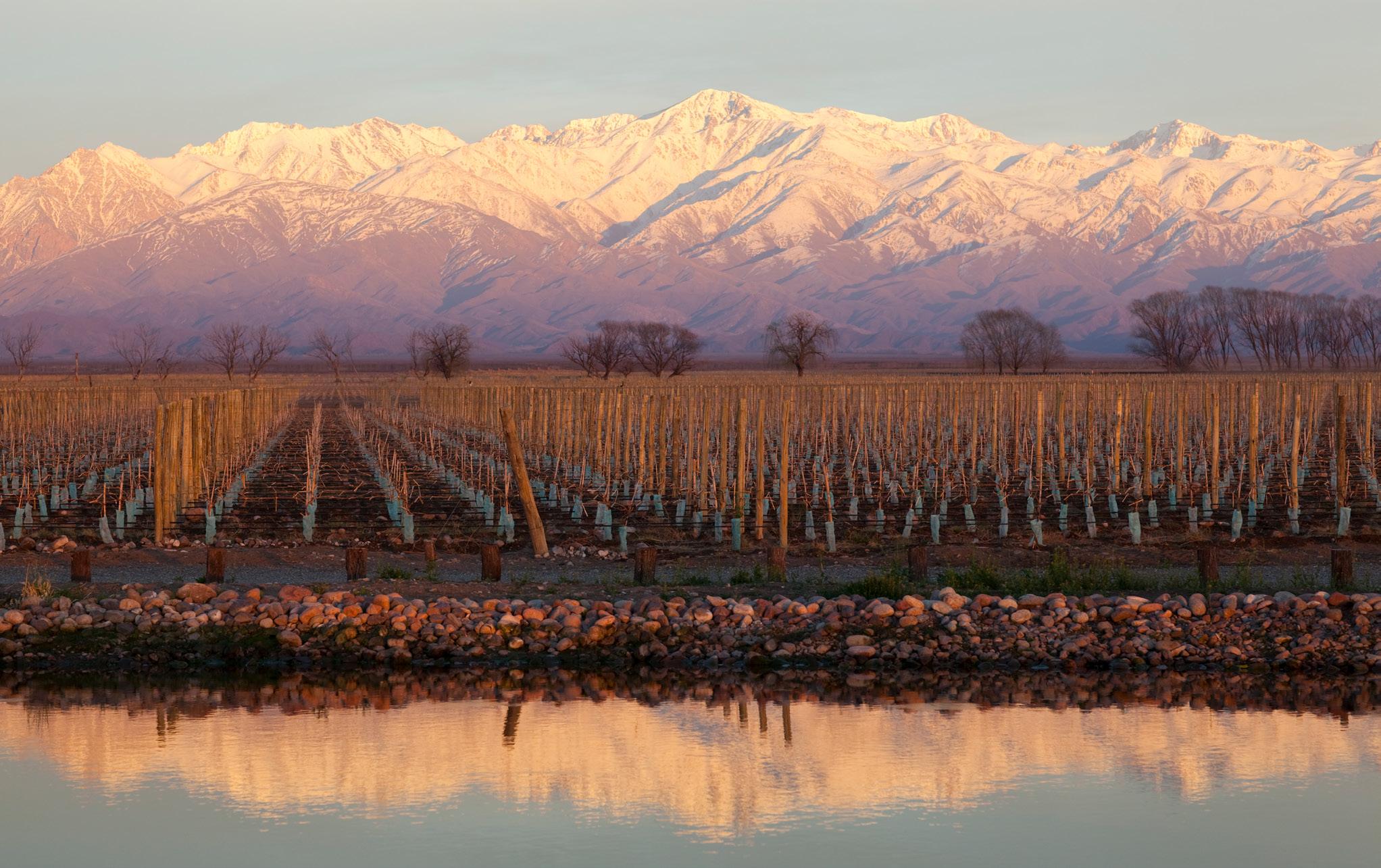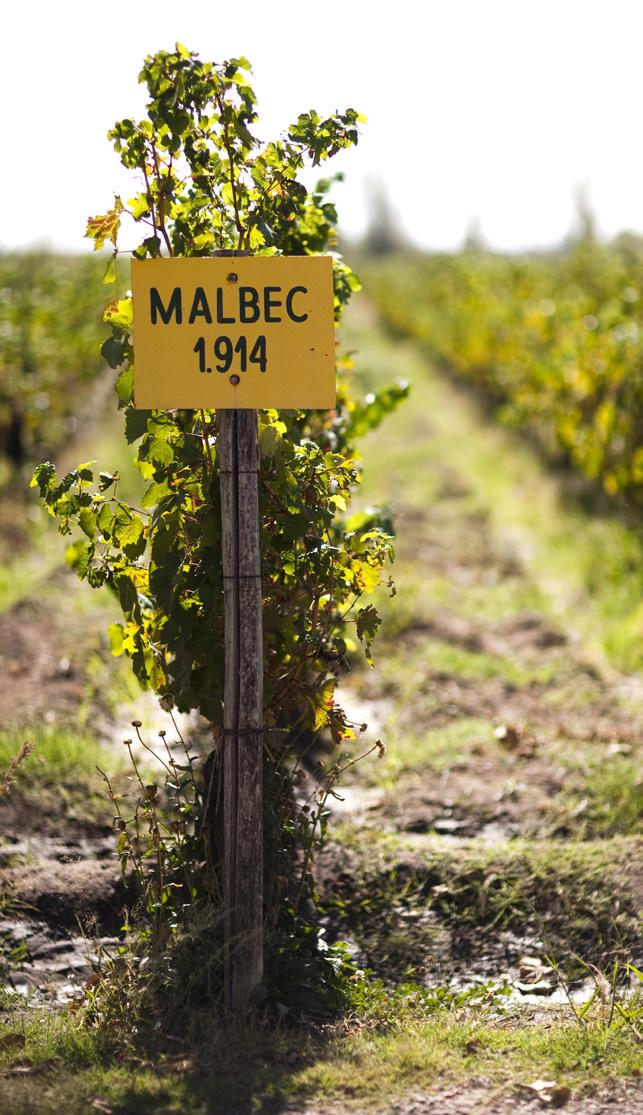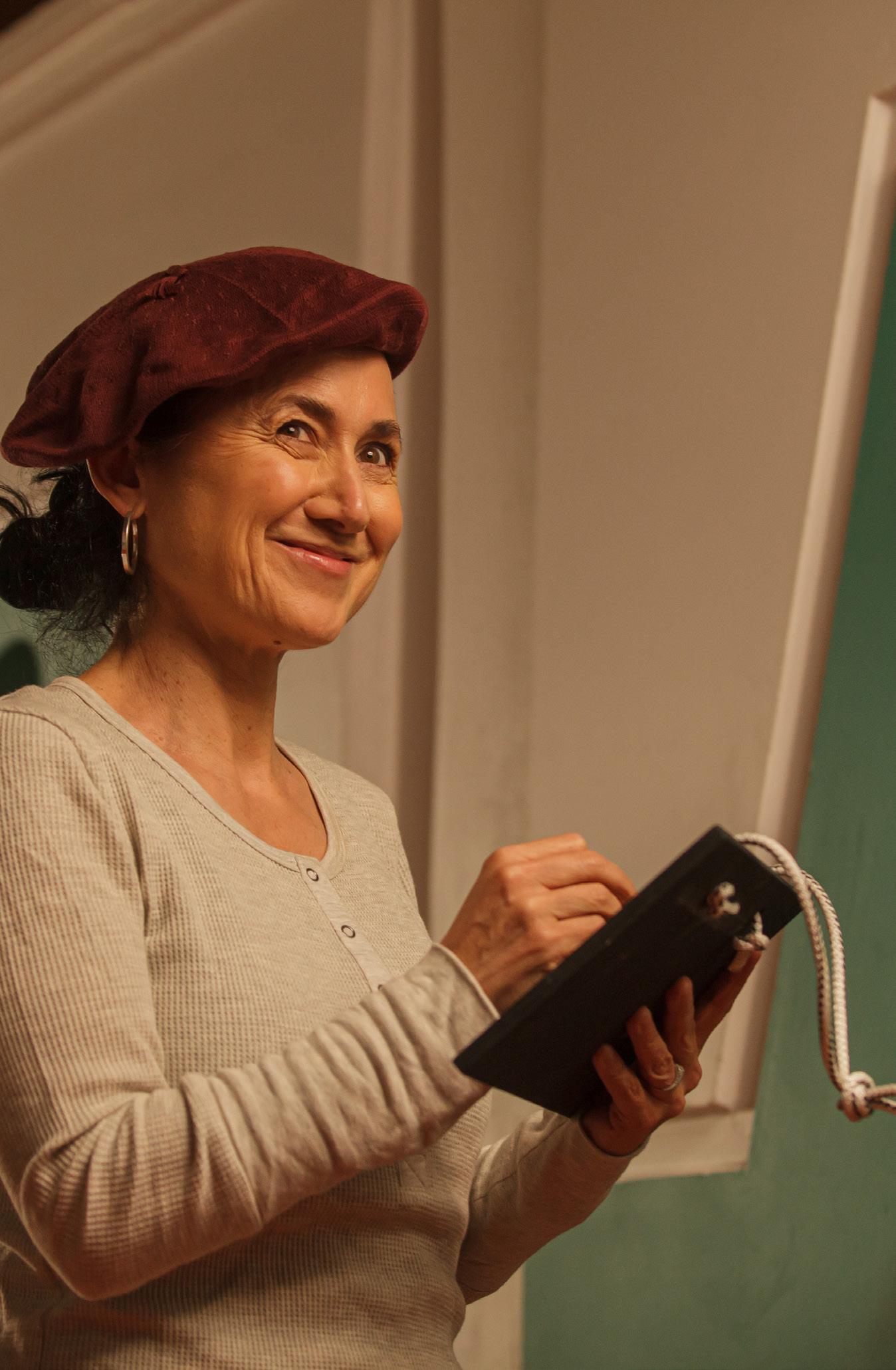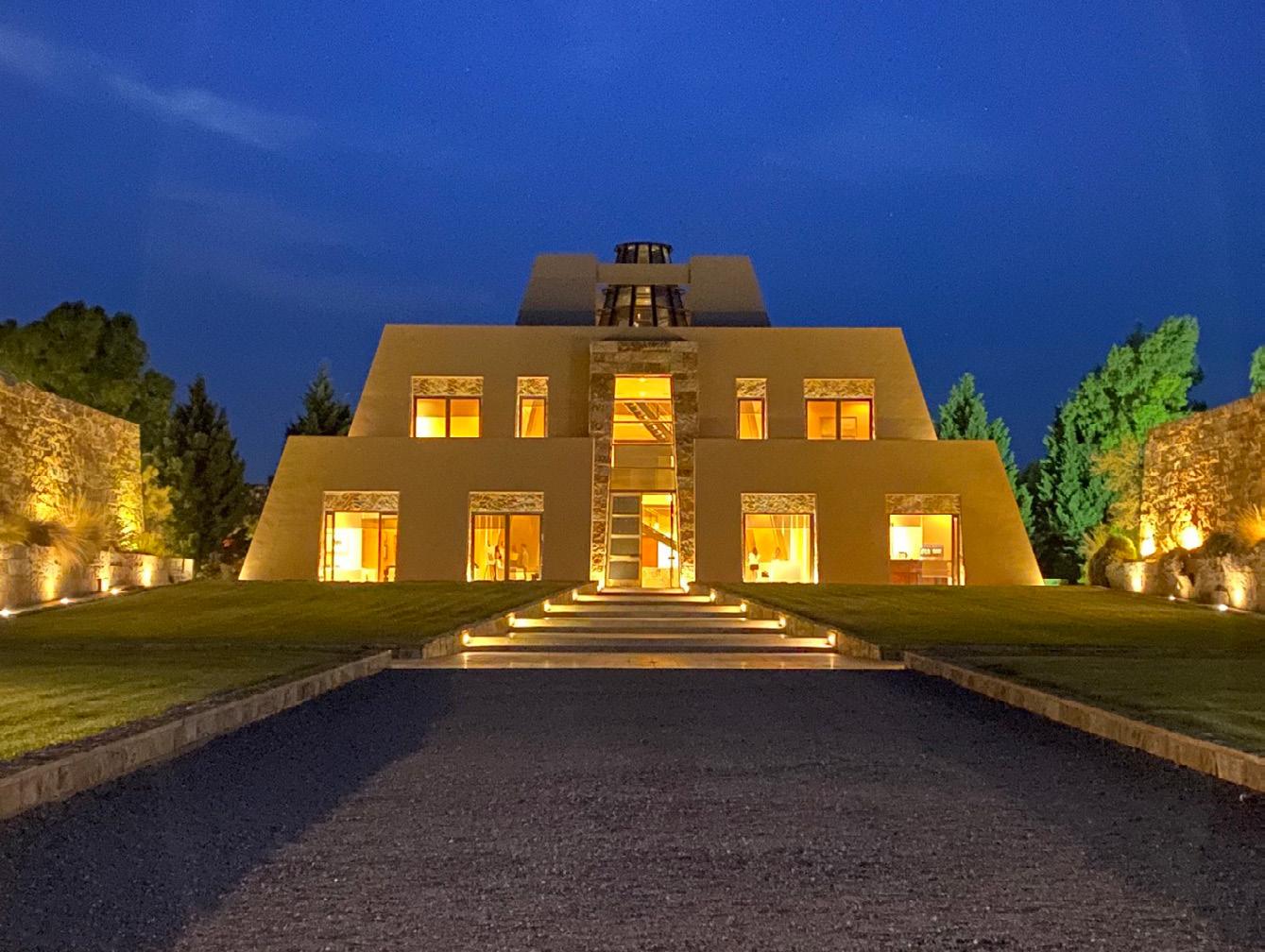
11 minute read
From Medicine to Malbec: Dr. Laura Catena's Journey in Wine
Dr. Laura Catena was born into a legendary wine family but made a decision early in life to follow a different path beginning with acquiring a degree in Biology from Harvard University before studying medicine at Stanford. Despite a successful career in emergency medicine in California, in the mid 90s she made the decision to manage both a career in medicine and support her family’s business. Over the past three decades she has become the face of the Argentinean wine industry, a much in demand speaker, an author (Vino Argentino, An Insider's Guide to the Wines and Wine Country of Argentina and Oro en los viñedos / Gold in the vineyards). Amongst many, many other accolades she was named "Woman of the Year" by The Drinks Business Awards in 2022, and in 2023 announced as WSET’s Honorary President. She has also been a passionate advocate of, and inspiration for, women working in the wine industry.
ASI: Despite growing up in a wine family, you didn’t pursue wine initially. Was this a personal choice or does it speak to Argentinean culture at the time?
Dr. Laura Catena (LC): Both. When I was a child, when we went to the winery, I used to watch the dogs, while my brother would go hang out with my grandfather. Watching the dogs was an important job, because my grandfather was obsessed with his dogs, but at that time he felt ‘the winery was not a woman's place.’ In fact, in Argentina, at that time, a lot of women didn't even drink wine. It was viewed as not womanly.
However, my father had a different attitude. His mother was the headmistress of the local school. She really believed in equality amongst men and women. She was just as demanding academically of her daughters as her sons. So had I told him at 18 I wanted to go work with him, he would have said, yes, you can start today. But my grandfather would have first asked my brother, ‘are you sure you're not interested in the job?’ before giving me the chance.
That said, as a young adult, I wasn’t interested. I only thought ‘losers’ went into their parent's business. I thought, at the time, you are supposed to do your own thing. I think that still holds true, as most young people don't want to go work with their father, or their mother. That's why I'm very patiently waiting for my children or my nieces and nephews to hopefully come and work with me.
I wanted to do something to help people. I wanted to become a doctor, to help people. As with many young people, I was not interested in making money. Of course, now, I have a lot of respect for people wanting to make money. You can do a lot more things when you have money. You can pay people better, you can plant better vineyards, you can make better wine. This is what makes the world run.
ASI: Was there a seminal moment, point in time, that made you change your mind about being directly involved in your family business?
LC: Back in the mid 90s, my father asked me to represent Catena at Wine Spectator’s New York Wine Experience. It was the first time a South American winery was invited. My father said to me, ‘Laura, you're the only one who speaks English well. You need to go and represent us.’ I went there and realised nobody knew about Argentine wine, at all. We didn't exist. I thought to myself, my father's whole project of putting Argentinean wine on the map of great wines of the world was going to fail. So, in the end, I made the decision to work for the winery mostly to help my dad.
ASI: At the time, you were a young emergency room doctor. How did you balance your love of medicine and this desire to help your father?
LC: It was difficult. I had just finished a specialty in emergency medicine, and running, for the first time, the emergency department of a great hospital in Los Angeles. This was before I moved to San Francisco to run emergency departments there. But I also really thought what my father was doing was very interesting. I wanted to help him, and I also really believed in the quality of our wines. Even then I was a wine lover and had the luxury of drinking some of the best wines in the world during my university days. When I went off to college (Laura Catena graduated magna cum laude from Harvard before pursuing medicine at Stanford), my father gave me his credit card. He said, ‘you can buy any wine you want with this card, but when I come for a visit, we have to taste them blind together. At 20 I was blind tasting Vega Sicilia Unico, Lafite, Latour… all the best wines of the world. When I started working with my dad, I wanted to combine my love of wine and science. I told him let’s get our research in place. Let’s understand our place, and let’s see what those great wineries of the world are doing. Over time I realised we couldn't just apply what they were doing in Bordeaux and Burgundy, or even in California to Argentina because we were in this unique high-altitude region, with almost no water. We had these different soils, different varieties, even Malbec wasn’t Malbec. At the time everyone in Argentina was focused on clones, but really we had all these different soils, different varieties of Malbec. Thanks to my time in France with my family, I learned the value of massal selection of old vines.
ASI: What made you finally decide to give up medicine and work fulltime at Catena?
LC: I made that decision in November 2019. My dad had turned 80, and I'd done emergency medicine for almost 30 years. At that point, I felt like my family deserves this. I wanted dad to be able to relax a little bit and spend time with the grandkids. Of course, then came COVID. I thank God I made the decision I did because I was so busy with COVID. I felt like I was on Zoom all the time. With COVID, I also got to use my medical skills. I went around with a team hat vaccinating marginally housed people. It was great to be out there again, convincing people who didn't want to get vaccinated.
ASI: Have you experienced any sexism at the winery?
LC: I always tell people that nothing good comes out of something good. Good things only come out of bad things. So that's why every time something slightly bad happens to you, you're about to do something great. I do a lot of good things when I get mad. When I first went back to Argentina to help at the winery, I was looking at one of our vineyards with one of our winemakers. He was conducting the research using a trial-and-error approach. Not super scientific. I remember asking him ‘what is your control for this experiment?’ and his response was ‘your English is good, you should help us with marketing.’ I was so insulted. I didn't even know what marketing was. I went to medical school, and I had previously studied biology. And while today I understand what marketing is, and understand it isn’t easy, it's an entire field of its own. It's just as distinctive as making wine and management. I remember thinking, ‘this person is not going to just throw me into the public relations, or marketing department. I am sticking to what I know how to do, which is biology.’

I was determined that if we were going to compete with the best minds of the world, we better get our science right. My decision was mostly based on helping my dad, and protecting him from bad advice, but it was also to conduct research. There was a little youthful arrogance too, at the time. I am more humble now.
ASI: When you began your work with your father, women in the Argentinean wine industry were few and far between. As you alluded to, most worked in public relations, and marketing. How important has it been for you to be a mentor to young women seeking to become winemakers or take on senior leadership roles?
LC: I always say that the best thing is to lead by example. If you go to a winery such as Catena and see that I'm in a leadership position, as are several women both in the business, winemaking, viticulture sides of the business. If you see women in leadership positions, whether you are a man or a woman you want to join that winery. I find men don't like working in all male teams. Men love working with women, or at least the kind of men that I hang out with.
Another thing I have been a real advocate for is equal pay for equal work. It's an all-too-common thing to say ‘women do all the work, or the women are so good at things’, but then ask yourself are you paying them the same for that job as a man? It's the basics of equality, but it is not always what's happening. Pay equity is something that is very firmly established at our winery. My business philosophy is whoever does most of the work gets paid for that.



ASI: Is there anything else that needs to change in the workplace to make sure more women are advancing to leadership positions?
LC: I think the next big discussion point in terms of the advancement of women, and in a sense its about men, is family responsibilities. Who goes home if a child is sick? Many times, when both mother and father work, it’s the woman. I once was in a situation when a man indicated he had to go home because his child was sick. Somebody asked, ‘where's your wife?’ I was so angry. That is not the right question. We need to support men in taking on these roles that are traditionally female. If we don’t then we're not going to get true equality. We need to encourage men to take on roles like taking care of older parents. All these things where it's much more acceptable in jobs for the women to do it. And so that women end up doing.
ASI: You are also a mother of three. Which brings up another important challenge with respect to equality, which the role of men and women in work and at home.
LC: As far as being able to do two professions and be a parent at the same time, the key was what I call accepting the B minus or the C. I remember one time with my second child, I was having difficulty producing milk. I was very worried. I couldn't get enough milk for my baby. I remember thinking, ‘why is this happening?’ I was really stressed about trying to take care of the baby, traveling for wine and practicing medicine simultaneously. I asked myself, ‘do I need to do everything well?’ Honestly the answer is no. I don’t. For example, having a neat house. Nobody needs a neat house all the time. Do you need to have a perfectly cooked meal every night? No; you don’t. It’s the same way with parenting. The best parents are not the perfect parents. The best parent is one that lets the kid make mistakes. When one of my kids called me about they forgot their lunch, I would tell them to beg their friends for some food. Asking for favours is an important skill to learn. It’s a class in negotiation. Even young kids can figure things out. Letting them do things for themselves is the best form of education. I think that there's a lot of areas in your life where accepting a bad grade is the secret to being able to get a good grade in the things that are important.




